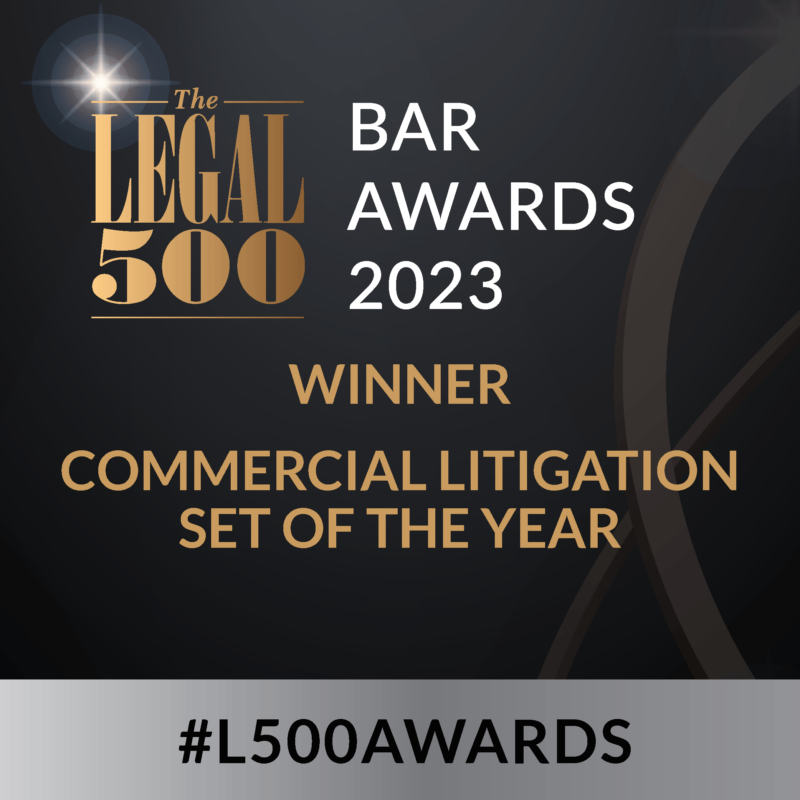3VB successful in US$540m DIFC appeal
In Emirates NBD Bank PJSC & Ors v Advanced Facilities Management LLC & Ors [2022] DIFC CA 012 (1 May 2023), the DIFC Court of Appeal (comprising Chief Justice Zaki Azmi, Justice Sir Peter Gross and Justice Robert French) dismissed an appeal against a judgment of Justice Sir Jeremy Cooke granting the claimant banks immediate judgment for c. US$540 million under a syndicated English law loan facility, involving both conventional and Islamic lending.
The claimant banks brought a claim for the sums due under the facility, following the borrower’s default. The appellants, who were the defendants below asserted that, at a meeting on 16 December 2018, shortly before the facilities were concluded, representatives of the arranging bank, stated that it would not join the syndicate and provide finance unless they received additional security over the assets of a related party. They also claimed that the arranger made promises and implied representations about the provision of working capital, over and above the facility. It was alleged the arranger promised that it would try to arrange working capital from the other syndicate members, but if that was unsuccessful, it would provide at least AED 100m in working capital itself. The arranging bank, the eighth claimant, denied having made any promises about working capital – its position was that it wanted to reduce its exposure, not increase it.
The appellants contended that the threat not to provide financing amounted to duress, which rendered the facility voidable. They also claimed that the alleged promise of working capital amounted to a collateral contract and carried implied representations that the arranger had reasonable grounds to say that it would provide working capital. Those representations, they said, were negligent and no working capital was ultimately provided. They blamed the lack of working capital for the subsequent collapse of the group.
The appellants also said that the Islamic financing was advanced in breach of AAOIFI Standards, which were incorporated into the contract, with the result that the Master Murabaha agreement was void.
In a robust judgment, [2020] CFI 065 (9 May 2022), Justice Sir Jeremy Cooke granted immediate judgment dismissing all the appellant’s defences and entering judgment in the sum of c.US$540 million. Further background to this judgment can be found here.
The appellants appealed to the Court of Appeal on seven grounds, none succeeded.
Ground 1 related to Justice Cooke’s conclusion that the appellants had no prospect of showing that the arranger acted as agent for the putative syndicate at the December meeting. The Court of Appeal endorsed that conclusion, there was nothing in the extant agreements to make the arranger an agent for the putative syndicate and that was not an arranger’s usual role. The appellants had not identified a factual basis for any agency relationship. The Court also accepted that there was a logical problem with the assertion that the arranger was acting for other banks when it made demands for itself and promises that it would provide funding.
The effect of that conclusion was that any counterclaim to rescind the facility agreements for duress, misrepresentation or breach of a collateral contract was bound to fail. In any case, the Court of Appeal concluded (dismissing grounds 3, 4 and 5) that the Judge had been right to hold that the appellants’ case in duress, misrepresentation and collateral contract had no prospect of success. There was no unlawful act that gave rise to an allegation of duress. That issue turned on the construction of appellants’ engagement of the arranger. The engagement made clear the arranger was not obliged to lend, so a threat not to lend was not unlawful. Any case in misrepresentation could only work if the arranger had acted fraudulently, which was not advanced and, in any case, the alleged statement that the arranger would provide working capital was too uncertain to amount to a representation on which it was reasonable for the appellants to rely. For the same reason, there was no collateral contract.
The Court of Appeal also gave the allegation that the Islamic financing was in breach of AAOIFI Standards (ground 7) short shrift. The Court of Appeal confirmed that the Judge had been entitled to proceed in the absence of expert evidence. Registrar’s Direction No. 3 of 2017 concerning expert evidence on sharia law did not prevent the court from dealing with Sharia points without such evidence. The Court of Appeal also refused to admit late expert evidence on Sharia where it did not satisfy the Ladd v Marshall test and where the expert evidence was so poor as to “irretrievably undermine the credibility” of the expert. On the substance, the Court of Appeal concluded the Judge had been right that the financing documents did not incorporate the AAOIFI Standards and that, even if they had, there was no breach.
Those conclusions were sufficient to dispose of the appeal. Grounds 2 and 6 ultimately turned on factual issues. The Judge had formed the view that the appellants had no real prospect on those issues, because the contemporary documents were all adverse to the appellants’ case and the only witness evidence lacked credibility. Although the Court of Appeal could see force in the Judge’s reasoning and did not say he was wrong, in the end it preferred to express no view on these grounds, which were moot.
This decision confirms a robust use of the immediate judgment procedure which likely saved years of litigation and very substantial legal costs. The appellants’ position was that the claim required several weeks of trial. The DIFC Courts remain an effective forum in which banks can bring claims against delinquent borrowers and guarantors.
Tom Montagu-Smith KC and Matthew Watson appeared for the respondent banks at first instance and on appeal, instructed by Rita Jaballah and Jonathan Brooks of Al Tamimi & Co.








